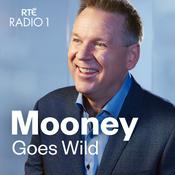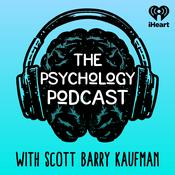45 episodes

Graphene, Nanotubes, and Quantum Hall Physics | Philip Kim
06/1/2026 | 2h 47 mins.
How do electrons behave when they’re confined to a single layer, and why do entirely new laws of physics emerge when dimensions shrink?Papers discussed in this episode:Experimental observation of the quantum Hall effect and Berry's phase in graphene: https://www.nature.com/articles/nature04235Tunable Fractional Quantum Hall Phases in Bilayer Graphene: https://arxiv.org/abs/1403.2112Room-Temperature Quantum Hall Effect in Graphene: https://arxiv.org/abs/cond-mat/0702408In this episode, we speak with Philip Kim, Harvard physicist and a leading experimentalist in low-dimensional quantum materials. Kim traces the experimental path from high-temperature superconductors and charge-density waves to carbon nanotubes and the earliest graphene devices, revealing how advances in nanofabrication and quantum transport opened the door to modern 2D materials physics.We dive deep into the Hall effect and quantum Hall effect, from their 19th-century origins to the discovery of quantized and fractional conductance, and explain why these effects were found experimentally before they were fully understood theoretically. Kim shares behind-the-scenes stories of early graphene experiments, mechanical exfoliation, Shubnikov–de Haas oscillations, and what it was like to be scooped by the work that launched graphene into the spotlight.Along the way, we explore how disorder, dimensionality, and magnetic fields shape electronic behavior; why carbon nanotubes paved the way for graphene; and how many of the most important discoveries in condensed matter physics arise from intuition, timing, and new experimental tools.Whether you’re interested in graphene, quantum transport, the quantum Hall effect, nanofabrication, superconductors, or the real stories behind breakthrough discoveries, this conversation offers a rare, technically rich look at how modern quantum materials research actually unfolds.Follow us for more technical interviews with the world’s greatest scientists:Twitter: https://x.com/632nmPodcastInstagram: https://www.instagram.com/632nmpodcast?utm_source=ig_web_button_share_sheet&igsh=ZDNlZDc0MzIxNw==LinkedIn: https://www.linkedin.com/company/632nm/about/Substack: https://632nmpodcast.substack.com/Follow our hosts!Mikhail Shalaginov: https://x.com/MYShalaginovMichael Dubrovsky: https://x.com/MikeDubrovskyXinghui Yin: https://x.com/XinghuiYinSubscribe:Apple Podcasts: https://podcasts.apple.com/us/podcast/632nm/id1751170269Spotify: https://open.spotify.com/show/4aVH9vT5qp5UUUvQ6Uf6ORWebsite: [https://www.632nm.com](https://www.632nm.com/)Timestamps:00:00 - Intro01:15 - How Philip Began Studying Graphene20:06 - Old Methods of Creating Graphene32:33 - Hall Effect and Quantum Hall Effect48:29 - Philip's Work at Columbia52:33 - Philip's First Experiments with Graphene1:06:43 - Did Philip Get Scooped from a Discovery?1:09:40 - The Power of Scotch Tape1:24:57 - High Temperature Quantum Hall Effect1:30:18 - Fractional Quantum Hall Effect1:41:17 - Collaboration with Particle Physicists1:54:13 - Single Layer Graphene1:59:44 - Next Gen Electronics with 2D Materials2:03:23 - Graphene Twisting2:14:48 - Superconductivity in Other Materials2:20:06 - Anyons2:30:00 - Fault-Tolerant Quantum Computing2:36:05 - Can AI and Big Data Help Physicists?2:40:47 - What Would Philip Do with Unlimited Resources?2:43:44 - Optimizing the Education System#graphene #quantumphysics #materialscience #halleffect #electromagnetism

Quantum Matter, Super-conductors, and Black Holes | Subir Sachdev on the SYK Model
23/12/2025 | 2h 34 mins.
What makes high-temperature superconductors and “strange metals” some of the most perplexing systems in modern physics?In this episode, we speak with Dr. Subir Sachdev: Harvard physicist and one of the leading architects of today’s understanding of quantum matter. Sachdev explains why strange metals refuse to behave like ordinary conductors, how quantum entanglement reshapes the landscape of many-body physics, and why the quest to understand cuprate superconductors continues to push both theory and experiment to their limits.We explore the physics of the cuprate phase diagram, the collapse of quasiparticles, and the role of quantum criticality in creating universal, linear-in-temperature behavior. Sachdev walks us through the origins of the SYK model, its surprising connections to black-hole thermodynamics and holography, and how new lattice-based models may finally bridge the gap between solvable theory and real materials.Whether you’re curious about superconductivity, quantum criticality, black-hole analogies, emergent gauge fields, or the deep physics behind strongly correlated electrons, this conversation offers a rare, accessible look at how frontier theoretical work is redefining our picture of quantum matter—from the lab bench to the edge of spacetime.Follow us for more technical interviews with the world’s greatest scientists:Twitter: https://x.com/632nmPodcastInstagram: https://www.instagram.com/632nmpodcast?utm_source=ig_web_button_share_sheet&igsh=ZDNlZDc0MzIxNw==LinkedIn: https://www.linkedin.com/company/632nm/about/Substack: https://632nmpodcast.substack.com/Follow our hosts!Mikhail Shalaginov: https://x.com/MYShalaginovMichael Dubrovsky: https://x.com/MikeDubrovskyXinghui Yin: https://x.com/XinghuiYinSubscribe:Apple Podcasts: https://podcasts.apple.com/us/podcast/632nm/id1751170269Spotify: https://open.spotify.com/show/4aVH9vT5qp5UUUvQ6Uf6ORWebsite: https://www.632nm.comTimestamps:01:22 - Subir’s Path to Condensed Matter Physics06:24 - Challenges in Discovering Cuprates09:53 - History of Superconductivity20:07 - Subir's PhD work27:09 - Development of the SYK model41:09 - Strange Metals56:43 - Derivation of SYK Model1:03:53 - Signatures of Strange Metals1:09:58 - How Quantum Mechanics Affects Black Holes1:17:10 - What Brought Subir to Black Holes?1:19:43 - Black Hole Connections to SYK1:29:28 - ADS CFT Correspondence1:37:04 - Can Quantum Computers Help Advance the SYK Model?1:40:17 - Is AI Useful for Theoretical Physics?1:46:40 - How does Quantum Criticality Play into Superconductivity?1:49:11 - Derivation Quantum Criticality1:52:49 - What is Holography?1:55:07 - Holography2:00:19 - Green’s Function2:08:46 - Green’s equation slides2:13:23 - Yukawa Model vs SYK2:17:30 - Can AI Brute Force Physics Discoveries?2:23:51 - What Would Subir Do With Unlimited Funding?2:36:33 - Dissecting the Hype of Superconductivity2:31:15 - Raising the Next Generation of Great Physicists#theoreticalphysics #quantummaterials #astrophysics #superconductivity #superconductor #blackhole #quantumphysics #quantummechanics

How to Build Fault-Tolerant Quantum Computers | Austin Fowler on Surface Codes + TQEC
09/12/2025 | 1h 50 mins.
Would we get a quantum computer sooner if everything was open source?In this episode, we speak with Austin Fowler, one of the architects of quantum error correction and a pioneer of the surface code used in today’s leading quantum computers. Fowler helped lay the groundwork for scalable, fault-tolerant computation at Google Quantum AI, before leaving to advocate for a more open and collaborative model of research.He explains why building a useful quantum computer will require millions of reliable qubits, why no known algorithm yet clearly outperforms classical computation, and why the field’s current competitive funding model may be slowing progress instead of accelerating it. From the engineering challenges of superconducting qubits to the economics of global research, Fowler offers a candid, inside look at the state of quantum technology.We explore the history and promise of quantum error correction, the software bottlenecks that still stand in the way, and how an open-source, international approach — modeled on CERN or the International Space Station — could transform the field. Along the way, Fowler reflects on his time at Google, the importance of collaboration, and what it will really take to make quantum computing practical.Whether you’re interested in quantum hardware, physics, computer science, or research policy, this conversation reveals the technical, ethical, and economic realities behind one of today’s most ambitious scientific pursuits.Follow us for more technical interviews with the world’s greatest scientists:Twitter: https://x.com/632nmPodcastInstagram: https://www.instagram.com/632nmpodcast?utm_source=ig_web_button_share_sheet&igsh=ZDNlZDc0MzIxNw==LinkedIn: https://www.linkedin.com/company/632nm/about/Substack: https://632nmpodcast.substack.com/Follow our hosts!Michael Dubrovsky: https://x.com/MikeDubrovskyMisha Shalaginov: https://x.com/MYShalaginovXinghui Yin: https://x.com/XinghuiYinSubscribe:Apple Podcasts: https://podcasts.apple.com/us/podcast/632nm/id1751170269Spotify: https://open.spotify.com/show/4aVH9vT5qp5UUUvQ6Uf6ORWebsite: [https://www.632nm.com](https://www.632nm.com/)Timestamps:00:00 - Intro01:40 - Austin’s Longevity in Quantum02:31 - What’s the Goal of Quantum Computing?05:01 - Creating Fault-Tolerant Qubits06:55 - Advantages of 2D Surface Code08:47 - Austin’s Journey into Quantum16:32 - Working at Google20:14 - Alternatives to Surface Codes22:18 - Should Quantum Computing Be Open Source?25:20 - Quantum Computing is Eating Itself30:52 - Open Source as a Mission35:46 - Advice for People Getting into TQEC39:03 - Bit Flips vs Phase Flips45:43 - History of Surface Codes49:05 - From Surface Code to Fault Tolerance57:19 - What Software do Quantum Computers Need?1:00:17 - Quantum vs Classical Error Correction1:05:57 - Manufacturing Superconducting Qubits1:12:02 - Noise Models in Software1:21:21 - How do NISQ Experiments help us Build Better Computers?1:24:01 - State of the Art Topological QEC1:31:38 - How did the TQEC Community Begin?1:34:46 - Future of TQEC1:36:03 - Quantum AI1:37:58 - Advice for Young Scientists1:41:35 - Underrated Quantum Research1:47:21 - What are the Most Important Upcoming Developments?

Why Syncing Atomic Clocks is Virtually Impossible | Judah Levine on UTC
26/11/2025 | 2h 4 mins.
Why is syncing atomic clocks still one of the hardest problems in physics and engineering?In this episode, we speak with Judah Levine—legendary NIST physicist and one of the key architects of modern timekeeping—about the invisible systems that hold the digital world together. Levine explains why synchronizing atomic clocks across the planet is far more complex than the clocks themselves, and why seemingly simple ideas like “round-trip delay” break down in real-world media such as fiber optics and the internet.We explore how UTC is built from hundreds of atomic clocks, the difference between keeping time and *transferring* time, and the surprising challenges introduced by asymmetric delays, chromatic dispersion, and environmental noise. Levine walks us through the evolution of cesium clocks, the rise of optical clocks, and the technologies that make GPS, finance, power grids, and global communication possible.Along the way, we discuss the history of time synchronization, from railroad schedules to radio frequencies to modern satellite systems; the ongoing debate over leap seconds; and why the future of precision timing depends not just on better clocks, but on better *engineering* to deliver those clocks’ performance to the real world.Whether you’re curious about atomic clocks, relativity, fiber optics, GPS, the structure of time itself, or the hidden physics behind everyday technology, this conversation offers a rare look at how science, engineering, and careful statistical thinking keep modern civilization in sync—down to the nanosecond.Follow us for more technical interviews with the world’s greatest scientists:Twitter: https://x.com/632nmPodcastInstagram: https://www.instagram.com/632nmpodcast?utm_source=ig_web_button_share_sheet&igsh=ZDNlZDc0MzIxNw==LinkedIn: https://www.linkedin.com/company/632nm/about/Substack: https://632nmpodcast.substack.com/Follow our hosts!Michael Dubrovsky: https://x.com/MikeDubrovskyMisha Shalaginov: https://x.com/MYShalaginovXinghui Yin: https://x.com/XinghuiYinSubscribe:Apple Podcasts: https://podcasts.apple.com/us/podcast/632nm/id1751170269Spotify: https://open.spotify.com/show/4aVH9vT5qp5UUUvQ6Uf6ORWebsite: [https://www.632nm.com](https://www.632nm.com/)Timestamps:00:00 – Intro01:03 – What is UTC?05:50 – Timekeeping for Satellites07:08 – How Radio Created Better Clocks18:32 – From Astronomy to Atoms25:25 – Why are there 24 Hours in a Day?29:55 – Why Synchronizing Clocks is so Hard47:09 – How did Judah get into Clocks?53:29 – Is UTC Vulnerable to Hackers?1:06:41 – Cesium vs Optical Atomic Clocks1:11:23 – How Cesium Clocks Work1:23:35 – Why Cesium Clocks are Imperfect1:26:17 – Judah’s 3 Year Experiment1:29:30 – Statistics with Clocks1:33:40 – Is Time Real?1:36:29 – Is the Universe Slowing Down?1:40:29 – Atomic Time and General Relativity1:42:17 – What’s Left for Atomic Clocks?1:54:34 – What would Judah do with Unlimited Funding?1:58:57 – Judah's Past in Programming2:02:55 – Advice for Young Scientists

Can We Predict History Like the Weather? | Peter Turchin on Cliodynamics
04/11/2025 | 1h 18 mins.
Why do civilizations rise, prosper, and then collapse? Here's what the math tells us.In this episode, we sit down with Peter Turchin, complexity scientist and founder of the field of cliodynamics, which uses data and mathematical models to study the long-term cycles of history. Turchin explains his theory of elite overproduction, how societies generate too many ambitious, educated elites competing for too few positions, and why this dynamic reliably leads to polarization, inequality, and political turmoil.We explore how his structural-demographic theory maps the recurring “boom and bust” rhythms that have shaped civilizations from ancient Rome to modern America, the role of military competition in driving cooperation and social complexity, and how new tools—from AI-assisted historical databases to ancient DNA and LiDAR—are transforming the study of the past.Whether you’re drawn to history, sociology, complexity science, or the fate of modern democracies, this conversation reveals how Turchin’s quantitative approach offers a new way to understand—and maybe even forecast—the forces that make societies rise and fall.Follow us for more technical interviews with the world’s greatest scientists:Twitter: https://x.com/632nmPodcastInstagram: https://www.instagram.com/632nmpodcast?utm_source=ig_web_button_share_sheet&igsh=ZDNlZDc0MzIxNw==LinkedIn: https://www.linkedin.com/company/632nm/about/Substack: https://632nmpodcast.substack.com/Follow our hosts!Michael Dubrovsky: https://x.com/MikeDubrovskyMisha Shalaginov: https://x.com/MYShalaginovXinghui Yin: https://x.com/XinghuiYinSubscribe:Apple Podcasts: https://podcasts.apple.com/us/podcast/632nm/id1751170269Spotify: https://open.spotify.com/show/4aVH9vT5qp5UUUvQ6Uf6ORWebsite: https://www.632nm.comTimestamps:00:00 - Intro01:48 - Overproduction of Elites10:56 - Did Models Predict the Rise of Trump?20:43 - Is Russian History Repeating in the US?26:48 - How Competition Stabilizes Societies32:14 - What Data Goes into Cliodynamic Models?38:13 - How New Technologies Shaped Archaeology43:28 - Can Historians Build Mathematical Intuitions?47:59 - What Questions can be Answered with Cliodynamics?52:23 - Does the NYC Mayoral Race Fit into Turchin's Theory?56:37 - Is Fear of China Bringing Us Together?58:29 - Do Historians Reject Turchin’s Work?1:00:03 - Trends in Civilizations and Outliers1:03:29 - Calvary and the Evolution of Societies1:10:03 - Is Evolution via Natural Selection a Suitable Analog for History?1:15:16 - Could Turchin's Ideas Be Misinterpreted Dangerously?
More Science podcasts
Trending Science podcasts
About 632nm
Listen to 632nm, Radiolab and many other podcasts from around the world with the radio.net app

Get the free radio.net app
- Stations and podcasts to bookmark
- Stream via Wi-Fi or Bluetooth
- Supports Carplay & Android Auto
- Many other app features
Get the free radio.net app
- Stations and podcasts to bookmark
- Stream via Wi-Fi or Bluetooth
- Supports Carplay & Android Auto
- Many other app features


632nm
download the app,
start listening.





































